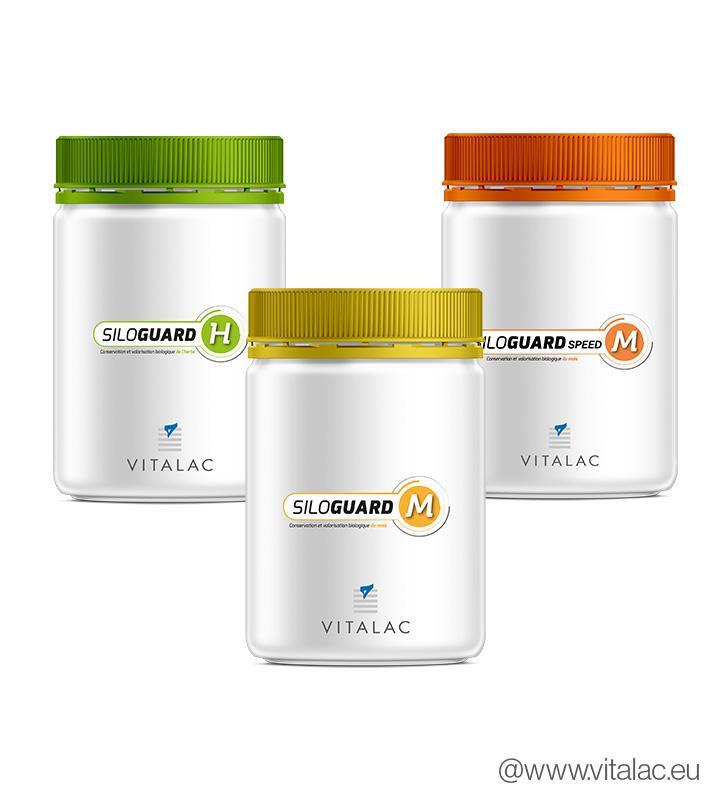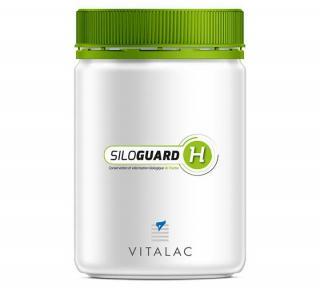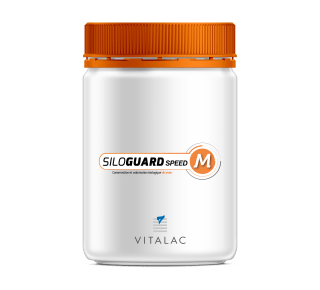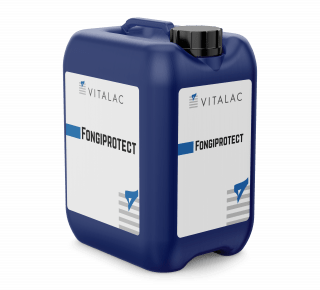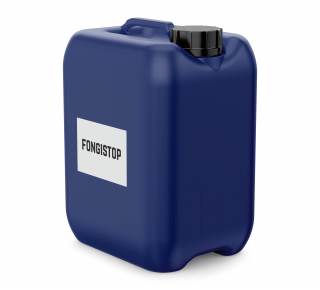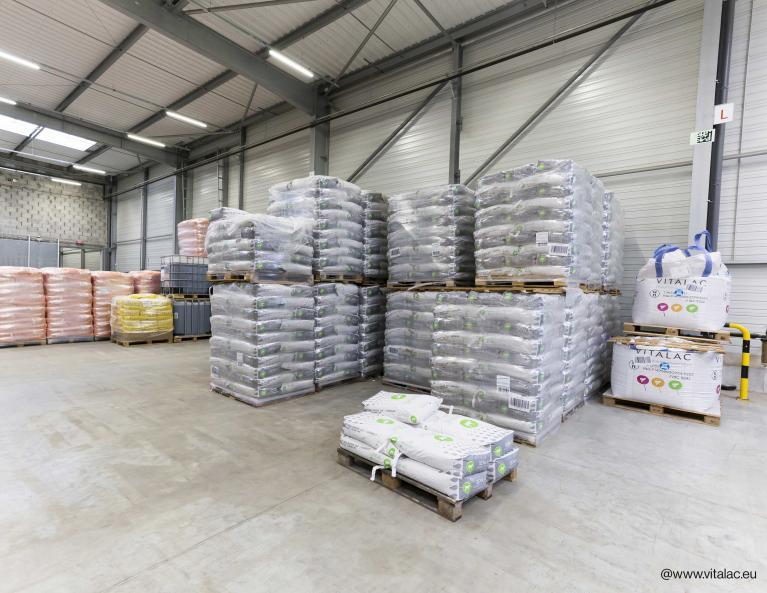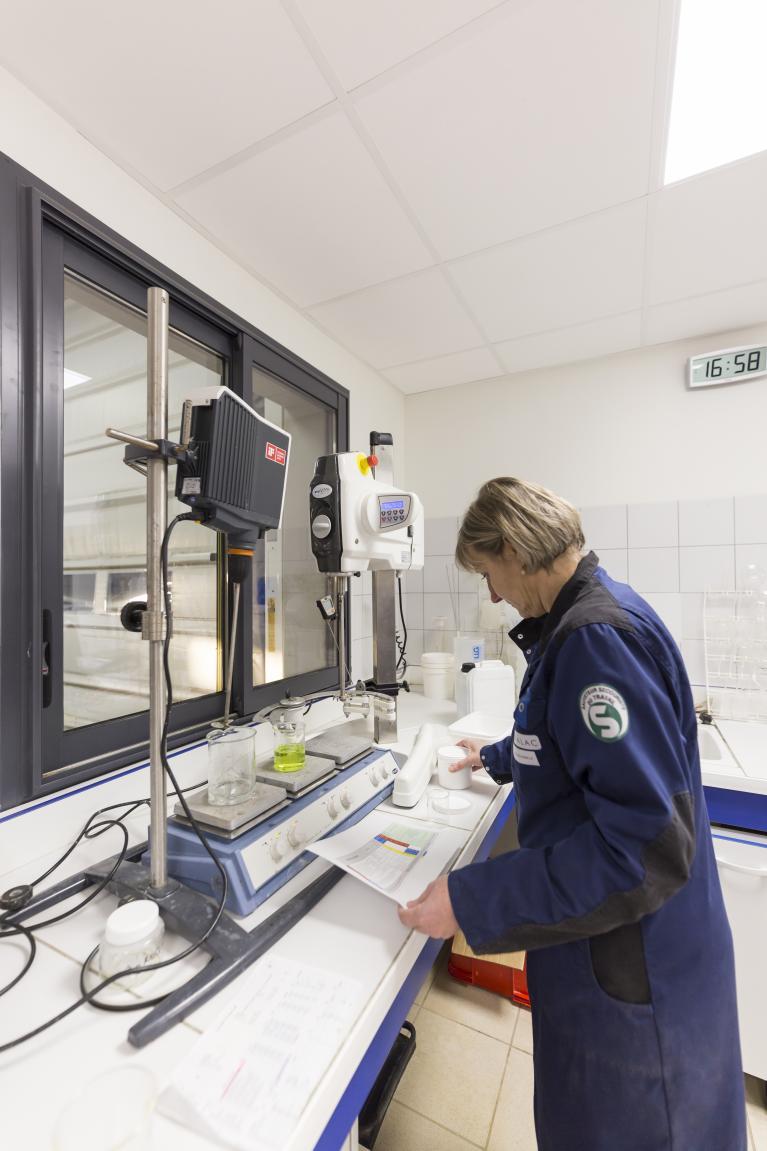Preservatives
For safe animal feed and high-quality forage and grain.
- Guarantee safe, palatable meals
- Provide a more digestible, high-energy feed
- Reduce losses in the silo
- Limit heating at the silo face
Preservatives to safeguard harvest quality
All the value of well-preserved feed
Well-stored harvests means farmers reap the benefits of their full potential. Storing grass and maize is a key step after silage operations, as it will determine the quality of the animal feed down the line. If you want to leave nothing to chance and avoid unwanted surprises, it’s important to think about storing your harvests in the best conditions, with a preservative to limit losses in the silo (without a preservative, the loss of dry matter is estimated at 12%, but drops to 4% with the use of a microbiological additive) and reduce heating at the silo face. When stacks heat up, it limits your animal’s ingestion and thus their performance. Preservatives are designed to prevent the development and growth of fungi, moulds and mycotoxins. We can’t always control the range of factors related to contaminations in the field, such as weather, preceding crops, soil preparation, plant varieties, etc., but during storage, we can reduce losses and get the most out of silages by using an organic or acidifying preservative.
Organic or acidifying preservatives to get the job done
Vitalac offers two types of preservatives to ensure optimal storage of grass and maize silages: organic or acidifying.
Our organic preservatives are microbiological additives composed of homofermentative and heterofermentative bacteria. Their role is to improve silage storage conditions by reducing fermentation at the opening. This keeps the silo face fresher, resulting in a more stable, more digestible ration. For grass and maize, our preservatives are sprayed on the entire harvest and are compatible with many applicators (either integrated into the forage harvester or added to the harvest equipment).
Our organic, acidifying preservatives are powerful pre-mixes. They are used more locally, in pig farming to inhibit the development of any yeasts or moulds. Our acidifying conservatives are especially recommended in difficult silage conditions, such as when dry matter content is too low or too high, the forage has a high buffering power or sugar content is low. Their formulas are non-corrosive.
Organic or acidifying, our preservatives meet expectations in terms of harvest storage, which is critical in farming.
